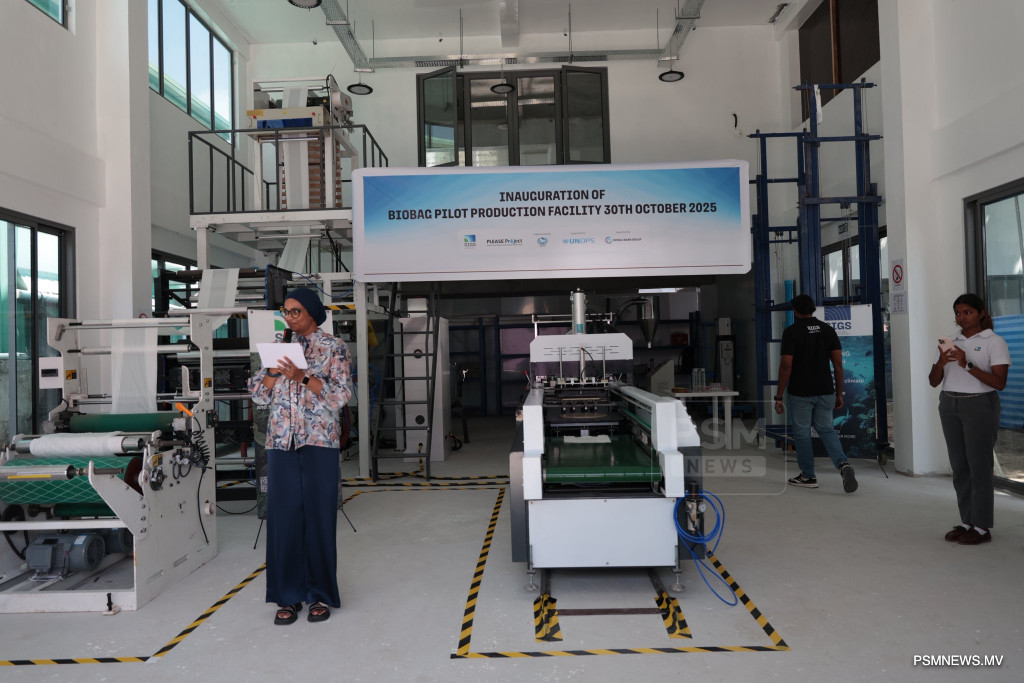
A significant step towards environmental sustainability and food security was marked on Sunday with the inauguration of a new bioplastic bag manufacturing centre in Hanimaadhoo, Haa Dhaalu Atoll established by the Small Island Geographic Society (SIGS).
The event was presided over by the Minister of Agriculture and Animal Welfare, Dr Mariyam Mariya, who used the occasion to announce the impending introduction of a comprehensive national packaging system designed to meet stringent food safety standards.
Speaking at the centre's opening, Minister Dr Mariya underscored the profound environmental challenges threatening the nation's pristine seas and fragile ecosystem. She cited alarming findings from a SIGS study, revealing that households in an illustrative city like Hulhumale’ alone consume over three million plastic bags annually, with each taking two decades to fully decompose.
More critically, she highlighted recent scientific evidence confirming the circulation of hazardous microplastic particles in human organs and bloodstreams, entering the body through air, food, and water – a stark reminder of plastic pollution's far-reaching consequences.
Hailing the new centre as a model of innovation, the Minister emphasised that the bioplastic bags produced are not only environmentally friendly but also completely biodegradable, offering a viable and sustainable alternative to conventional plastics.
She praised SIGS for its continued research and promotion of sustainable practices for managing domestic agricultural and household waste. These efforts, she explained, are intrinsically linked to reducing food wastage and are crucial steps towards lessening dependence on foreign imports, thereby enhancing the country's economic prosperity.
Looking ahead, Minister Dr Mariya confirmed that a new packaging system specifically tailored for Maldivian products, particularly food items, is actively being developed to comply with international food safety standards.
This initiative, she stated, is a vital component of the government's broader strategy to establish an environmentally friendly and sustainable development framework.
The project, a collaborative effort funded by the World Bank's PLEASE initiative and implemented in partnership with Sustainable Energy and Climate Action Plan (SECAP) and United Nations Office for Project Services (UNOPS), exemplifies the successful synergy between international scientific expertise and island-level innovative ideas.
The government remains committed, she added, to boosting local production and securing adequate markets for local goods, with improved packaging quality being a key focus of these efforts.
